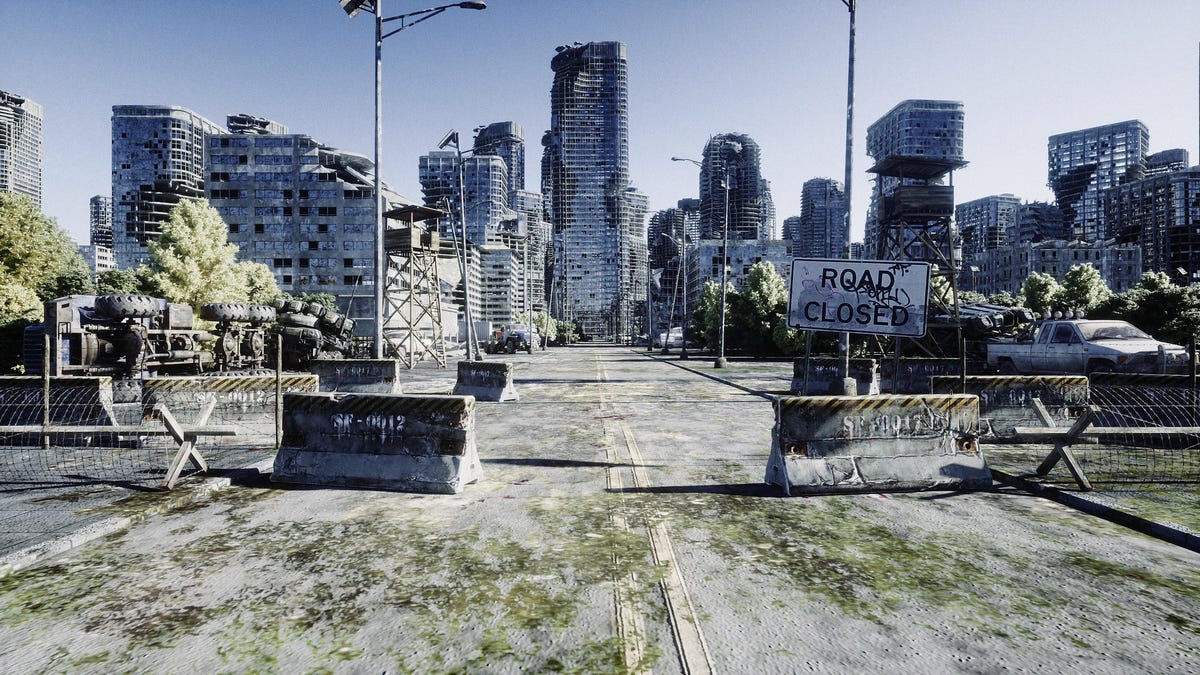Apocalyptic Events You Should Really Worry About

If you’re a normal person who reads or listens to the news at least occasionally, you’ve probably wondered when, or if, the world will end. With the global pandemic still fresh in everyone’s minds, it’s not as crazy as it might have seemed a few years ago—and make no mistake, the world will end someday. Whether it’s the flash of a sun that runs out of fuel and swells to burn the Earth, or the howl of slow, painful extinction (most mammal species survive for about a million years , give or take, which puts humanity about a third of the way through the cycle), someday we will all disappear.
But most of these doomsday scenarios take place millions, if not billions, of years in the future, meaning we don’t need to worry about it in any immediate way. And many other apocalyptic scenarios are fiction: while an asteroid strike could certainly kill us all, the likelihood of that happening, for example, is actually quite low . On the other hand, people like Oxford professor and philosopher Toby Ord believe that there is a 1 in 6 chance that the human race will suffer an existential collapse in the next century, meaning that you and I may have to deal with the end of the world after everything. So what apocalyptic scenarios could happen in our lifetime?
Skynet
Much of the talk about artificial intelligence (AI) focuses on economics and the likelihood of machines taking all our jobs, which means we haven’t focused on the right threat: terminators. According to an article published by the Global Challenges Foundation , within the next century there is a rather grim 1 in 10 chance that AI will make the classic sci-fi calculation that humans are the problem and simply decide to exterminate us all. A 10% chance may seem low, but it would mean we have a much better chance of being destroyed by one of those robot dogs from Black Mirror than of being blown up by an asteroid.
Super COVID
Did we mention the pandemic earlier? We’re sure we did. And although humanity barely survived this emergency, it seemed to highlight how vulnerable we are to some new virus (not to mention a parasitic fungal infection ). The Global Challenges Foundation estimates that there is a 5% chance that humanity will be wiped out by a future pandemic. The good(?) news is that it’s much more likely that a devastating virus will only kill half of us , like the Black Death in the 14th century , leaving the rest to move into all the empty mansions.
Nuclear holocaust
It’s darkly funny, but the end of the world in a nuclear firestorm followed by an endless nuclear winter seems strange right now, but there’s a 5% chance it will happen within the next 100 years, so stock that apocalypse pantry with baked beans and prepare yourself . Collectively, we have the firepower to melt the world multiple times over, and if you don’t vaporize on the first strike, you’re just as likely to die some time later from radiation poisoning or simple starvation and deprivation once DoorDash stops delivering.
Ecosystem Collapse
The terms “climate change” and “ecosystem collapse” certainly sound long-term—like the kind of disasters you can safely ignore and leave your children to worry about. But signs of a general collapse of our environment are already visible, from the decline of honey bees , which threatens our ability to grow food, to fears of a “ sixth extinction ” that could completely destroy the food chain. In short, the possibility that humanity will lose the ability to feed itself is real, and it is possible within our lifetime.
Everything, everywhere, everything at once
Now we are talking. Many experts believe that our end will not be one dramatic event, but rather a combination of many catastrophes – a limited nuclear war that would kill tens of millions of people and disrupt global agriculture and trade, followed by a pandemic that would devastate global agriculture and trade . For example, weakening humanity at a time when our technological and industrial base is faltering could deal us a double blow from which we may not be able to recover. It could be a relatively slow-moving series of mini-disasters that simply erode our ability to cope until we reach the tipping point of extinction, and the likelihood of that happening is depressingly high.
Of course, the likelihood that none of this will happen while we are alive is also quite high.